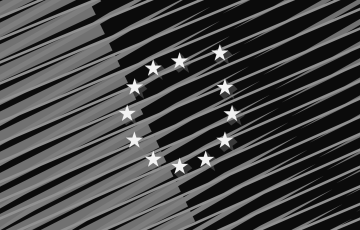Following the UK Government’s announcement on Friday 12th June 2020, the UK Border from January 2021 will look very different to the one most businesses will have been planning and preparing for.
The Announcement; a Summary
The UK will take a staggered approach to the implementation of full Customs Compliance on products entering GB from the EU from January 2021, with full responsibilities to be assumed by July 2021 on all products.
- From January 2021: Products without import controls will be required to submit import declarations within 6 months of import. Tariffs will be applied t0 all imports; however, payments can be deferred until the full customs declaration has been made. There will be checks on controlled goods like alcohol and tobacco. Businesses will also need to account for VAT on imported goods. There will be physical checks at the point of destination or other approved premises on all high risk live animals and plants.
- From April 2021: All products of animal origin (POAO) – for example meat, pet food, honey, milk or egg products – and all regulated plants and plant products will also require pre-notification through the IPAFFS system and the relevant health documentation.
- From July 2021: Traders moving all goods will have to make declarations at the point of importation and pay relevant tariffs unless using pre-approved customs procedures. Full Safety and Security declarations will be required. Good with SPS checks will be liable to increased physical checks and veterinary samples at GB Border Control Posts (BCPs).

Positive Signs, Lack of Details
It seems that heavy lobbying from multiple UK Industry bodies, private businesses and hauliers have gone some way to encouraging the UK Government to implement a staggered approach to a hard customs border with the EU.
While we are anticipating further details on the operations and mechanics of the staggered approach, the vague announcement published on Friday does leave a lot of questions unanswered. Areas such as tariff-payment, transit, product controls & export processes.
As always, the devil will be in the detail.
Considerations for Traders
While the announcement is very welcome and goes some way to afford British importers with a ‘implementation period’ for GB’s exit from the EU Customs Union, it offers a number of questions of its own.
- From the publication, it is not expressly mentioned whether tariff duties are deferred for Jan-July 2021 or whether they are waived for EU-GB imports.
- It is assumed that simplified import declarations (c. 14 data elements) will be needed at import, with supplementary declarations within 6 months – rather than a full import declaration with 54 data elements.
- The easements on GB-EU trade may leave the UK open to accusations of trade distortion at the WTO (the timescales & lack of movement at the WTO considered).
- Import VAT accounting will still need to be considered. This announcements goes some way to separating Import VAT from the fiscal considerations of customs – where traders may be best placed to combine the two.
- It is not immediately obvious how the ‘inland’ SPS checks will be administered and by which OGD.
- Further, there is a logical assumption made that the UK will continue to implement the EU’s external SPS regime for the period Jan-July 2021.
Potential Hazards
For businesses, the easements may seem like a blessing to keep trade moving across the GB-EU Border at the end of Transition, staving off a cliff-edge and potential supply-side issues for businesses and consumers alike.
However, there are hazards to business preparedness in kicking the can down the line.
- Business will begin their import compliance operating models with customs procedures/easements that may not be available into the longer-term.
For example, utilising the simplified/supplemetary (EIDR) declarations to ease pressure at ports, to then remove that from traders from July 2021 would create its own issues. Business can, and should, look at the long-term operating model for supply declarations to HMRC – that can include maintaining the simplified declarations through CFSP/AEO authorisation.
2. A very similar point to the one above for Simplified Import VAT Accounting (SIVA). Input VAT recovering will be vital for some business’ cashflow.
3. For businesses that Import & Export across GB-EU, the ‘asymmetric’ trade relationship of low/no GB import checks and a full external border in the EU will have its own challenges.
Providing separate documentary evidence, different data points, on different reporting timescales. It’s a compliance mire for some businesses.
4. Allowing businesses to account for all inputs over a 6-month period (January 2021) in a single submission before July 2021 is a dangerous game to play for both HMRC & traders.
The capacity for genuine mistakes, oversight or outright fraud are high. If you do take the bulk submission avenue, make sure to have a robust customs audit procedure to analyse, assess & account for all of those import & declarations. Customs fraud & fines can rule you out of future Customs schemes.
Business: How to Prepare
Businesses may be best placed to look on the GB Import easements as the an ‘implementation period’ for their own Customs Compliance Strategy.
By this, we mean to set your future compliance strategy; the operating model, the staff, the goals & measures of success. Begin the delivery of that strategy now. Whether that’s hiring, training, implementing an IT system or pursuing a Customs Procedure authorisation.
Utilise the Implementation period as a ‘buffer’ incase elements of the strategy are not delivered on time. You ensure business continuity & minimise distress in an uncertain period. You still have 6 months from January 2021 to deliver your best laid plans.





